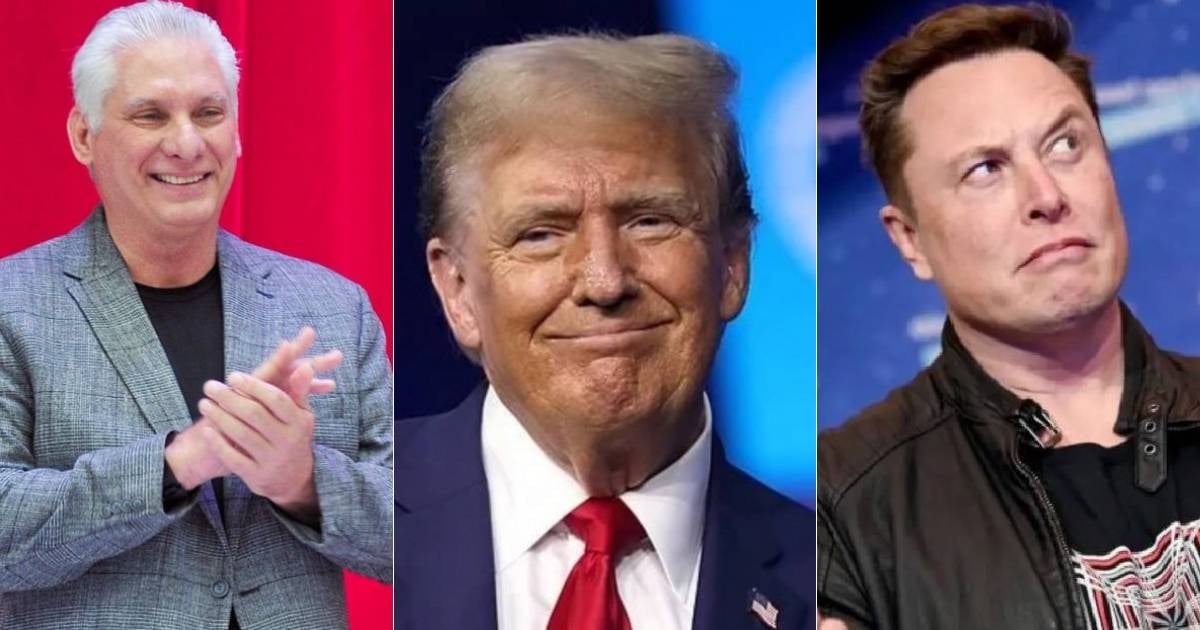In an unexpected turn of events, Cuban leader Miguel Díaz-Canel, former U.S. President Donald Trump, and tech mogul Elon Musk have all voiced criticism against the United States Agency for International Development (USAID), albeit from vastly different perspectives and motivations.
Díaz-Canel recently took to X to criticize the "million-dollar projects" of USAID aimed at funding independent media and NGOs in Cuba, pointing out that the U.S. government and "sensationalist" media now seem alarmed by something his government has been denouncing for years. "It's very simple to follow the money trail and see who has become new millionaires," he stated.
Echoing this sentiment, Cuban Foreign Minister Bruno Rodríguez described USAID as a tool for destabilization operations against Cuba, noting that since 1990, the agency has allocated between 20 and 50 million dollars annually to try to undermine the island's constitutional order. Rodríguez claimed that USAID has used millions for illegal operations: over 6 million dollars between 1998 and 1999, and 61 million from 2001 to 2006, with 142 projects aimed at the Cuban government.
Trump's Actions Against USAID
On the other hand, Trump has questioned the efficiency of USAID, labeling it a "criminal organization" and stating they "turned out to be radical left-wing lunatics." Since returning to the White House on January 20, the Trump administration has taken steps to dismantle the agency, arguing it doesn't serve U.S. interests and operates more like a "global charity" than an entity that promotes national interests. On January 24, Trump ordered a near-total freeze on foreign aid, affecting numerous international programs.
Musk's Call for Transformation
Elon Musk, appointed to lead the Department of Government Efficiency under Trump's administration, has supported the restructuring of USAID. Musk has called the agency a "criminal organization" and advocates for its closure or transformation to reduce unnecessary public spending. He remarked, "It's time for it to die," and suggested that the agency is beyond repair.
Secretary of State Marco Rubio has assumed interim control of USAID, criticizing the agency for not advancing national interests. The restructuring includes significant staff reductions and the potential absorption of USAID by the Department of State. These decisions have created uncertainty for organizations and projects reliant on USAID funding, including independent media and NGOs in Cuba. Outlets like CubaNet and Diario de Cuba have asked readers for donations to continue operations amid funding suspensions.
International Concern and Legal Challenges
The international community has expressed concern. The NGO Caritas International, affiliated with the Catholic Church, called the funding freeze "reckless" and "inhumane," warning it could lead to "death and extreme poverty" in vulnerable communities. In response, the American Foreign Service Association and the American Federation of Government Employees filed a lawsuit seeking a temporary restraining order and preliminary injunction against the administration, arguing the actions violated the separation of powers and other constitutional provisions.
The next day, federal judge Carl Nichols issued a temporary restraining order, halting the plan to place thousands of employees on administrative leave and the accelerated removal of overseas workers.
The Role of USAID in Cuba and Beyond
Historically, USAID has had a contentious presence in Cuba. The island's government has repeatedly accused the agency of funding subversive activities and attempting to undermine Cuba's political system through support of independent media and civil society organizations.
Nevertheless, USAID has also participated in global humanitarian efforts. A notable instance was in 2014 when Cuban doctors worked in Liberia at an Ebola treatment center set up with support from the U.S. agency. Despite the Cuban government's rhetoric against USAID, health professionals from Havana collaborated with center staff, inaugurated by then-Liberian President Ellen Johnson Sirleaf. The center in Monrovia was among the largest in the country, designed to treat 200 to 300 patients.
Similarly, in Haiti, Cuban medical brigades have worked in hospitals funded by USAID. An example is the Jules Fleury Hospital in Nippes, where Cuban health professionals have provided care amid humanitarian crises and natural disasters.
This type of collaboration underscores the paradox in the relationship between the U.S. agency and the Cuban government: while Havana denounces USAID's interference, its doctors have served in facilities funded by the agency in needy countries.
Frequently Asked Questions About USAID's Role
What criticisms do Díaz-Canel, Trump, and Elon Musk have against USAID?
Díaz-Canel criticizes USAID for financing independent media and NGOs in Cuba. Trump questions its efficiency, labeling it a "criminal organization," and Musk supports restructuring to reduce public spending.
How has USAID been involved in humanitarian efforts?
USAID has participated in global humanitarian efforts, such as setting up an Ebola treatment center in Liberia with Cuban doctors in 2014 and funding hospitals in Haiti where Cuban medical teams have worked.
